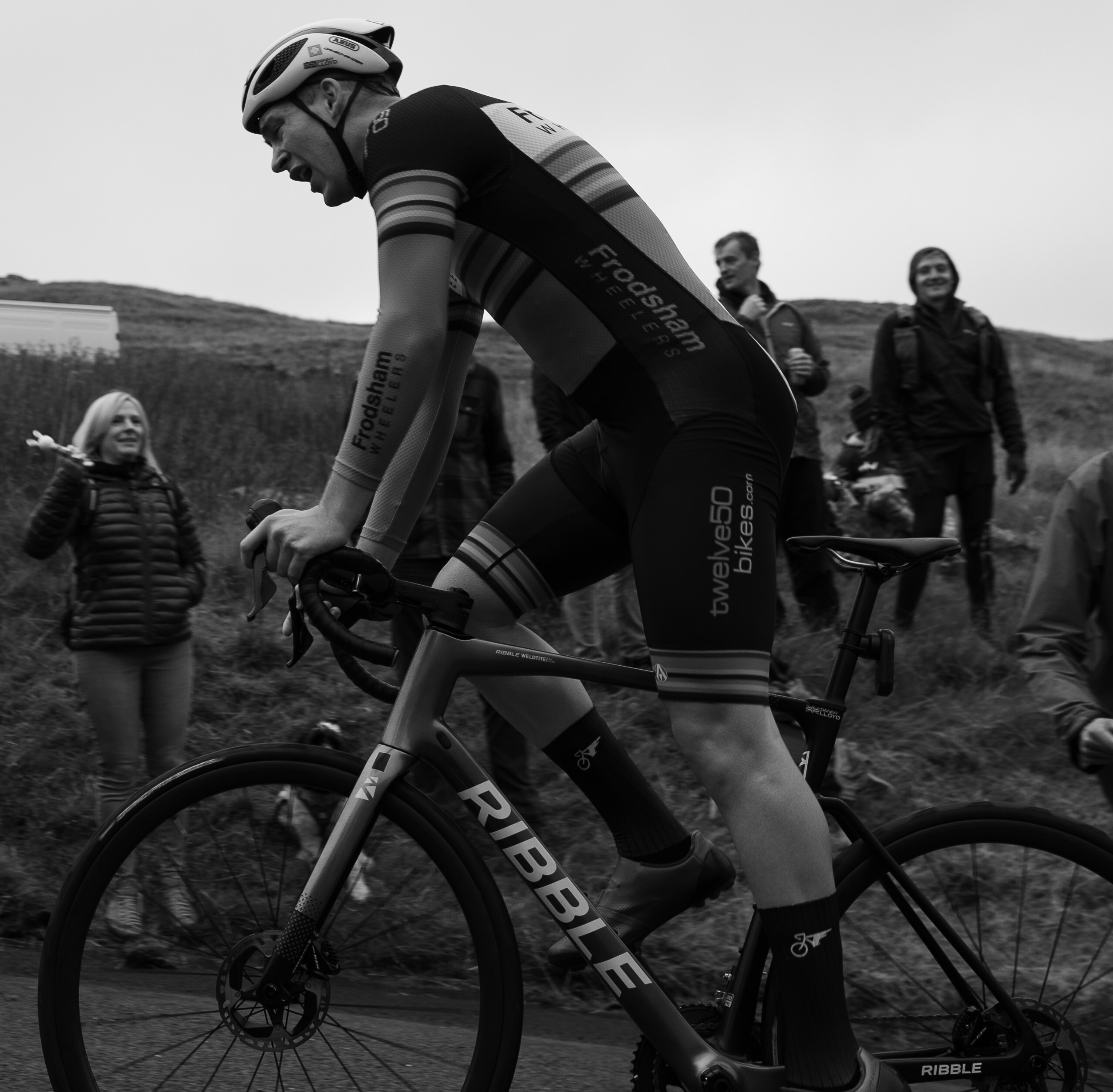
Each autumn, a certain section of the cycling population climb aboard their superlight climbing bikes and participate in one of cycling's must-see spectacles. Hill climb season is upon us. Here we explore a uniquely British race discipline that predates modern cycle racing.
As the seasons change and golden leaves litter the roads in reckless abandon, a series of races as quintessentially British as the cafe stop ride proliferate throughout the land. Hill climb season has officially started, and a new National Champion will be crowned in late October.
The modern-day hill climb has changed little since its inception way back in 1886. Though the first race hosted by Catford CC on Westerham Hill, Kent, was somewhat different from today's racing. Back then, the participants would have competed on safety bicycles with solid tyres.
The Catford CC Hill Climb has since moved to the much steeper York Hill, Kent, which boasts a lung-busting maximum gradient of 25%. But, rather incredibly, this event remains the longest-running cycle race in history.
So what exactly is a hill climb, we hear you ask? Essentially, it takes the form of a short uphill time trial on steep hills all over the UK. These climbs often feature gradients as severe as 15-25%, pushing each rider to the absolute limit in their quest to record the fastest time.

A women's category was introduced in 1998.

The pain of The Struggle is writ for all to see.
It's not just the competitors who make hill climbing such an engaging spectacle. Family and friends line the slopes of such out-of-the-way locations as the Struggle in the Lake District, cheering on every rider as vociferously as their own. Many are armed with cowbells, creating a cacophony of sound that greets each rider and spurs them on by sheer force of will.
Riders will often go to extraordinary lengths to modify their bikes in the pursuit of victory. Employing any means possible to shave off every last gram of weight, with the aim of making both themselves and the bike lighter. Even going as far as to shed unnecessary accoutrements such as water bottles in the quest to lighten their bikes.
The biggest area to save weight is, of course, the bike itself. Nothing matches the performance gains that an ultralight climbing bike offers. The lighter the bike, the easier it is to grind your way up your nemesis climb. To many, carbon is king. Yet it is not unusual to see some weird and wonderful creations, all with the aim of saving weight.

Powering the Endurance SL R Disc up the infamous climb of The Struggle in the Lake District.
If you want to experience a hill climb or even participate, you can find event details on the Cycling Time Trials website. The 2022 National Hill Climb Championship takes place on The Horseshoe Pass between Llangollen and Llandegla on 30th October.
We could not possibly advocate their use in official hill climb events but if you find climbing hills a struggle, an [electric bike]https://www.ribblecycles.co.uk/bikes/electric-bikes/) may be right for you. Offering an intoxicating blend of smooth power assistance, range, and connectivity, our road-optimised e-bikes ensure that you can take on everything from unimaginable mountain passes to hilly group rides or solo epics.

Incorporating a section of road between Ambleside and the Kirkstone Pass, The Struggle often results in riders reaching the summit within the cloud base.
Katie Kookaburra loves climbing, which is why All Points North always ranked highly on her cycling bucket list. Read her race report here.
Ex-international footballer Geoff Thomas tells us what inspired him to take on The Tour 21 for the sixth time. Click here to read the interview.